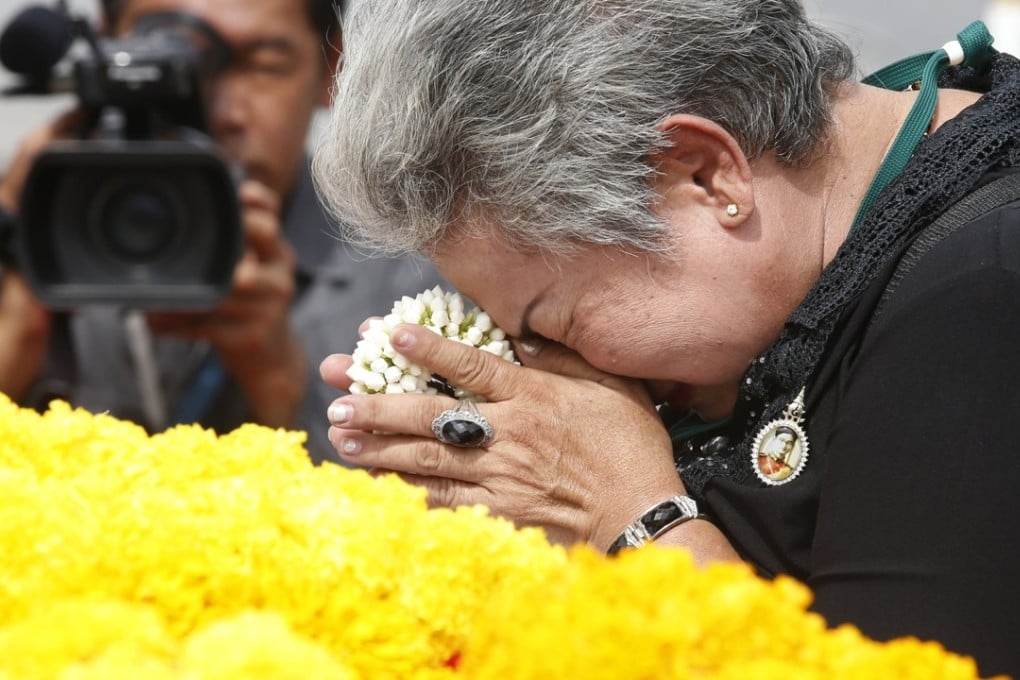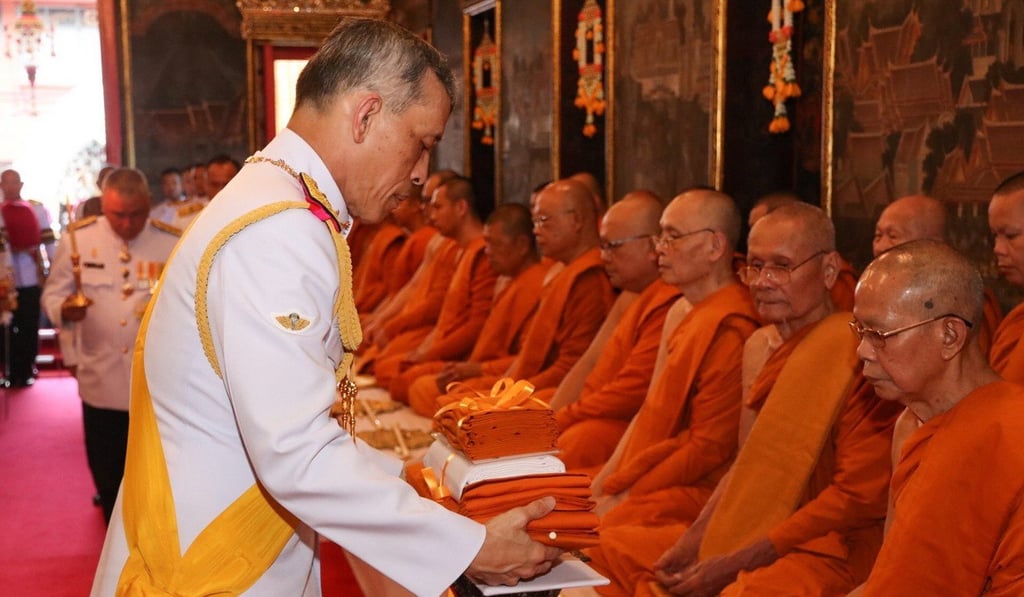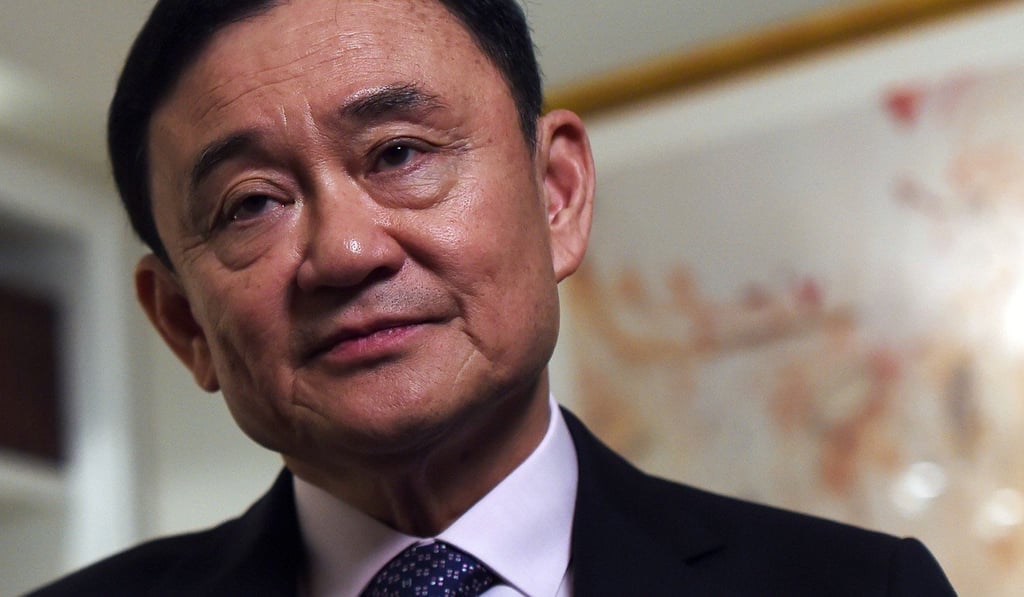As Thailand cremates King Bhumibol, can it keep lid on tensions?
A year-long mourning period has helped Thailand’s military junta hold on to power. Now a return to politics as usual looms and, in Thailand, that usually means conflict

WATCH: Thousands queue to visit coffin of late Thai King Bhumibol
Since Bhumibol’s death, fears have grown both for the state of the country’s economy – which has shown signs of stuttering since a 2014 military coup – and for its political balance of power under Bhumibol’s heir, Vajiralongkorn, now Rama X.
Thailand’s king dies: nation plunges into mourning – and uncertainty
Vajiralongkorn ascended the throne in December last year but public life has slowed remarkably over the past 12 months as the country mourned the late king. Vajiralongkorn’s official coronation is not expected until later this year, leaving the junta to oversee a sensitive transition period.
“The reason the junta could keep power for so long, compared to previous coups, is the passing of the king,” said Kan Yuengyong, executive director at the think tank Siam Intelligence Unit. “[After the coronation] it will be time to get back to normal politics.”

Thailand has been politically divided since its former prime minister Thaksin Shinawatra was ousted in a coup in 2006. For the past decade, pro and anti Thaksin groups (the red shirts and yellow shirts) have taken to the streets on various occasions and the old oligarchy has tried to erode the tycoon’s support base among rural and lower income groups in the northeast.

“The political conflict still exists. A lot of grass roots people are still very upset and more and more will get upset because of the [bad] economic condition”, said Kan Yuenyong.
“I think we will see more and more tension after the cremation and the royal coronation,” he added.